Kenneth Atchity's Blog, page 184
June 19, 2014
Religious & Inspirational Fiction eB...

Religious & Inspirational Fiction eBooks
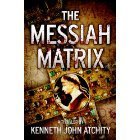 The Messiah Matrix Kenneth John Atchity
The Messiah Matrix Kenneth John Atchity Price: $4.99

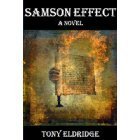 The Samson Effect: A Novel Tony Eldridge
The Samson Effect: A Novel Tony Eldridge Price: $0.99

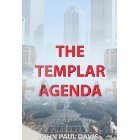 The Templar Agenda John Paul Davis
The Templar Agenda John Paul Davis Price: $1.19

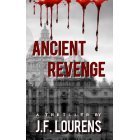 Ancient Revenge JF Lourens
Ancient Revenge JF Lourens Price: $2.99

 The Larmenius Inheritance John Paul Davis
The Larmenius Inheritance John Paul Davis Price: $1.49

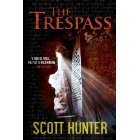 The Trespass (An Archaeological Mystery Thriller) Scott Hunter
The Trespass (An Archaeological Mystery Thriller) Scott Hunter Price: $4.50


Published on June 19, 2014 00:00
June 17, 2014
Vic's Media Room Reviews Larry D. Thompson's The Insanity Plea

Larry D. Thompson in his new book, “insanity bookThe Insanity Plea” published by Story Merchant Books brings us into the life of Wayne Little.
From the back cover: A young nurse is savagely killed during a pre-dawn run on Galveston’s seawall.
The murderer slices her running shorts from her body as his trophy and tosses the body over the wall to the rocks below. As dawn breaks, a bedraggled street person, wearing four layers of old, tattered clothes, emerges from the end of the jetty, waving his arms and talking to people only he hears. He trips over the body, checks for a pulse and, instead, finds a diamond bracelet which he puts in his pocket. He hurries across the street, heading for breakfast at the Salvation Army two blocks away, leaving his footprints in blood as he goes.
Wayne Little, former Galveston prosecutor and now Houston trial lawyer, learns that his older brother has been charged with capital murder for the killing. At first he refuses to be dragged back into his brother’s life. Once a brilliant lawyer, Dan’s paranoid schizophrenia had captured his mind, estranging everyone including Wayne. Finally giving in to pleas from his mother, Wayne enlists the help of his best friend, Duke Romack, former NBA star turned criminal lawyer. When Wayne and Duke review the evidence, they conclude that Dan’s chances are slim. They either find the killer or win a plea of insanity since the prosecution’s case is air tight. The former may be a mission impossible since the killer is the most brilliant, devious and cruel fictional murderer since Hannibal Lecter. The chances of winning an insanity plea are equally grim.
It will take the combined skills of the two lawyers along with those of Duke’s girlfriend, Claudia, a brilliant appellate lawyer, and Rita Contreras, Wayne’s next door neighbor and computer hacker extraordinaire, to attempt to unravel the mystery of the serial killer before the clock clicks down to a guilty verdict for Dan.
The Insanity Plea is a spell-binding tale of four amateur sleuths who must find, track and trap a serial killer as they prepare for and defend Wayne’s brother, who is trapped in a mind like that of John Nash, Russell Crowe’s character in A Beautiful Mind.
Combining legal thriller with tracking a serial killer, Thompson once again takes the reader on a helluva ride, right up to the last page and sentence.
A manhunt for a serial killer, a nail-biting thriller, a detective story and a courtroom battle these are the elements that Mr. Thompson has provided us in “The Insanity Plea”. All Wayne is trying to do is protect his brother. To really do so he is going to have to find the real killer and it is going to take the help of three friends to accomplish it. Add in the fact that that they are going to have to stay alive as the killer doesn’t want to be found. This is one exciting book. I do not recommend you drink coffee while reading this book as there is more than enough excitement to keep you going. Give yourself plenty of time to enjoy this book as you will want to finish it before going to bed. “The Insanity Plea” is an exciting adventure from start to finish.
Reposted From Vic's Media Room

Published on June 17, 2014 00:00
June 16, 2014
Interview - Art Johnson - Jazz Guitarist, Violinist, Composer and Author of The Devils Violin
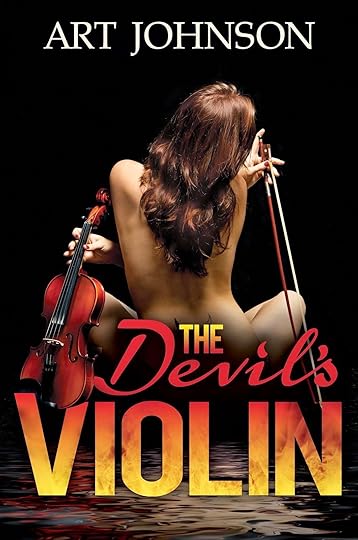 Art Johnson is an American born Jazz Guitarist, Violinist and composer who has recently written the novel The Devils Violin. Art thanks so much for granting us this interview. The Devils Violin holds a 4.7 star review on Amazonand is reviewed as one of the most enticing mystery thriller novels to date.
Art Johnson is an American born Jazz Guitarist, Violinist and composer who has recently written the novel The Devils Violin. Art thanks so much for granting us this interview. The Devils Violin holds a 4.7 star review on Amazonand is reviewed as one of the most enticing mystery thriller novels to date.
Art based on your very musical background you have t oured with Lena Horne, recorded with Barbara Streisand, and accompanied Pavarotti.
You have been on MTV - participated in Academy Award and Grammy Award music, acted as a California State University professor and lecturer to name but some. Which of these have you enjoyed the most?
Touring with Lena Horne is a standout for sure. It was three years and we became good friends, which is not typical in an employer/employee situation. But in truth, all of these experiences are connected like a chain of events and each setting has had great worth to me as a human being as well as a musician.
What made you decide to write The Devils Violin?
Actually, the book wrote me! I was vacationing in a village near Parma and just before going to sleep the names of the main characters came to me with a brief description and I wrote them down before turning out the lights. When I awoke in the morning I sat at the breakfast table with ten Italian relatives and began to write the first few chapters. They of course wanted to know why I wasn’t eating.
Was it easy to cross the bridge from musician to author?
Easy …? I started writing poetry in the 1980’s so I had spent time with word-play. To me, the creative element no matter what the medium is rooted in the same source: the imagination. If it is well trained the crossing over is not too difficult.
Can you tell us a bit more about the plot, without giving away any secrets?
The violin world is extremely complex. The instrument is difficult to play, and if you want to really have a great sound it is probably one of the most expensive instruments for a person to purchase. There are violin brokers, dealers and auction houses that are tempted to alter the lineage of an instrument to make it appear more valuable. The devils violin is about deception and greed as a cast of characters from Hollywood film producer who is obsessed with rare antiques in particular violins, FBI agents, two professional thieves, a master violin forger, and an elderly couple of great mystery who are after the violin case because it is believed that an alchemical treatise or formula that Niccolo Paganini use to expand his powers over the instrument is stuffed inside. The FBI is after an assassin who is suspected to have killed a violinist in Cremona Italy who is on their most wanted list. All the characters, like spokes on a wheel are spinning around the violin that was used by Paganini to forge his career.
Can you give us more insight into your main character?
That is difficult because the sneak – thief Gus happy and FBI special agent Chris Clarke compete to be the main character throughout the book.
Would you ever consider adopting this novel to film?
I couldn’t think of anything I’d like more.
The novel has been available since February this 2014, to date reviews have been great. Will there be a second novel within the series?
I’m working on it as we speak. Not a true sequel but several of the characters are returning to this semi-sequel.
Does having an existing fan base compliment your novel retail?
That is difficult to say. People are generally reticent to recognize you away from what you are known for. I certainly hope that my fans will be curious enough to read the book but I’m not sure how that will work out.
Are you looking to further your writing career? Yes.
You alternate your performances between the U.S and Europe, have you ever thought about expanding your travels to Australia, South Africa and so on? (If you do decide to come to RSA – Johannesburg, I have just the venue.)
In the last fifty years I’ve done thousands of performances. Now I am recording for ITI records in the States who has signed me to a life-time contract. I’m taking a break from live performance.
Are there specific events, fans can look forward to? Author signings, musical appearances?
As of this moment I am just staying on Monaco where I reside with my wife Patricia and my publisher is working hard to promote my novel. It’s a wait and see period which is a very interesting one for me.
What does the future hold for Art Johnson?
Hopefully, what I would wish for everyone. Good health, happiness and the drive to continue to create and offer something of value to those around me.
What would you say has created the success behind your name?
Honestly, I have no idea. Right place/ right time maybe?
Did you ever think you’d achieve everything you have done so far?
I didn’t start playing until I was seventeen years old: very late for a start in this business. I am grateful for every achievement that has come my way.
Places where fans can connect?
Facebook; Story Merchant; Art-Johnson.com; ITI music Corporation/ Warrant music.org
Art thanks so much for giving us some insight into your exciting new world. We wish you well in this new endeavour.
Nadine Maritz Reposted From My Addiction Books

Published on June 16, 2014 00:00
Book Hostage Features Dr. Warren L. Woodruff Author of Dr. Fuddle and the Gold Baton

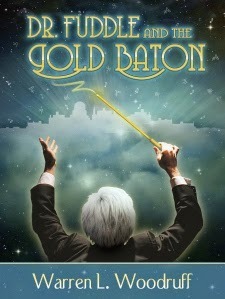 Synopsis: When the dark musician Jedermann and his fierce Seirens of Dis gain control of the legendary Gold Baton, Tyler, his sister Christina, and their friends are drawn into a perilous adventure foretold by an ancient prophecy.
Guided by the mythical Dr. Fuddle, the explorers must leave earth and journey to Orphea. Will the Messengers of Music be able to save the world of the immortal composers from chaos and destruction? For them to have even a chance at victory, they must master the most difficult instruments of all—themselves.
Synopsis: When the dark musician Jedermann and his fierce Seirens of Dis gain control of the legendary Gold Baton, Tyler, his sister Christina, and their friends are drawn into a perilous adventure foretold by an ancient prophecy.
Guided by the mythical Dr. Fuddle, the explorers must leave earth and journey to Orphea. Will the Messengers of Music be able to save the world of the immortal composers from chaos and destruction? For them to have even a chance at victory, they must master the most difficult instruments of all—themselves.About the Author
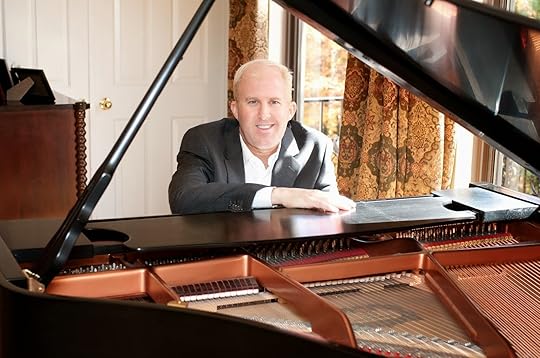
1. Why did you decide to write this book?
Because if wanted to create a fun adventure in a setting very different from anything used before. As a classical musician, I wanted to create an alternate world, one for the immortal composers, but one that, like our own world, has its own challenges and imperfections. How does this appeal to the reader? It’s nice for the classical composers but what does it do for the person who BUYS the book for money?
2. Do you have any secret writing tips you want to share?
Absolutely! Don’t be afraid to re-write several times, and from the first draft, READ EVERYTHING YOU WRITE OUT LOUD!
3. Tell us a funny, quirky or unexpected story about you?
It’s definitely not funny, but unexpected. Since age 13 I’ve been afflicted with a very rare auto-immune inner ear disorder, very similar to what Beethoven suffered. I did all my classical piano training in high school, college, and graduate school with one functioning ear. Since 2000, the other ear became affected and I’ve had to rely on a hearing aid in order to teach and perform. In the past decade the quality of my hearing has deteriorated, but using Beethoven as my inspiration, I continue for the sake of leaving behind what I feel I was destined for–to expose and inspire a whole new generation to the joy and excellence of classical music.
4. What books are on your nightstand right now?
The Ninth, Beethoven and the World in 1824, by Harvey Sachs
A Wish Can Change Your Life, by Gahl Sasson and Steve Weinstein
RareEarth by Peter Ward and Donald Brownlee
And of course, all seven Harry Potter books are proudly displayed on the shelf nearby
5. What is you favorite quote?
As a writer, this is a no-brainer: “If at first you don’t succeed, try, try again!”
6. Who inspires you most?
Recent/Living: Stephen Hawking, award-winning scientist
Dead: Ludwig van Beethoven, immortal composer
WRITTEN INTERVIEW QUESTIONS
1. What excites you most about your book’s topic? Why did you choose it?
The creation of the fantasy land of Orphea, because I’ve always loved mysteries and the possibilities of an afterlife. I don’t think this is compelling enough. I’d rather have it be something along the lines of “creating a world that would inspire young readers to achieve excellence in all they do—especially music!”
2. How long did the book take you from start to finish?
Two years, nine drafts total.
3. What aspect of writing the book did you find particularly challenging?
Learning the technical skills of writing, when my professional background is music.
4. Did you do any research for your books, or did you write from experience?
Both. Since I have a Ph.D. in Musicology, I have more information than anyone could ever dream of wanting off the top of my head, but there were some details I wanted to make sure were historically correct.
5. What surprised you most about this process?
How difficult it is to get a book to tell a story and make it read like a “real” book.
6. Did you have any notable experiences from writing your book?
Yes. There were times when I was working with my writing coach Mardeene Mitchell that I felt like I was no longer on earth, but that we were working on a spiritual plane.
7. What do you hope your readers will gain from reading your book?
Primarily, I want them entertained and feel as though they’ve actually been in Orphea with Dr. Fuddle and the Messengers of Music and that they’ve fought in the battle against Jedermann to reclaim the Gold Baton. Secondarily, I want to pique their interest in classical music. good
8. What other projects are you working on?
The screenplay of DR. FUDDLE AND THE GOLD BATON and a sequel to the first book. I’m also working on re-writing my six scene play BEETHOVEN in Final Draft.
9. Is writing your sole career? If not, what else do you do?
No. Writing is like a second career. I’ve been teaching the art of classical piano for over twenty-five years and with the autoimmune disease threatening my musical career, I’m transitioning to becoming a professional writer, but will always teach as long as my hearing allows.
10. When can we look forward to your next book?
Within one to two years, then one a year after that. I plan to make Dr. Fuddle a series of five to seven novels. I’m also envisioning a children’s picture book series entitled The Adventures of Dr. Fuddle, which would be more educational musically rather than fantasy adventure, but still entertaining, something like The Magic School Bus series.
Reposted from Book Hostage

Published on June 16, 2014 00:00
June 14, 2014
The Last Plane Out of Saigon Book Launch featured in the Austin American Statesman!



MEDIA: 'Last Plane Out of Saigon' book launch. Austin attorney Richard Pena was among the last of his generation drafted to fight in Vietnam. He did his stint. Then Pena returned to Austin to pursue -- quite successfully -- the legal profession. After decades passed, he returned to Vietnam to visit sites such as the War Remnants in Ho Chi Minh City. There, he spied a black-and-white photograph. The title card read: "Last Plane Out of Saigon." In the image, uniformed men and women line up to board what looks like a transport plane. Midway through the line is a man carrying a brief case, his back to the camera. That was Pena. Turns out, he had kept a journal, too. With writer John Hagan, Pena has published a version of that journal. A crowd of well-wishers gathered at the rather incongruous Rio nightclub on a sticky weekday to examine the thin, compelling book.
Reposted From The Austin American Statesman


Published on June 14, 2014 00:00
June 13, 2014
Amazon Is NOT the Vladimir Putin of the Publishing World

In its battle with Hachette, Amazon is being compared to Putin and the Mafia—by critics who want you to pay more for books.
Can you believe those…those…those…sons of bitches at Amazon? After launching almost 20 years ago and making virtually every book—new, used, dead-tree, electronic, audio, and I’m guessing any day now, olfactory—available to everyone in America at good-to-great prices, the company’s true character now stands revealed. It’s not pretty, folks. Despite a huge market share, Amazon apparently still wants books, especially the e-books that everyone agrees are the future of the medium, to be cheaper than what publishers and big-name authors want you to pay for them.
Just who the hell does Amazon think it is? Maybe a bare-chested tyrant who used to work for the KGB? Amazon is “like Vladimir Putin mobilizing his troops along the Ukrainian border,” a proprietor of an “e-book discovery site” tells The New York Times. “A bully,” offers Richard Russo, the novelist and president of the Authors Guild (which knows exactly how to bully mere “writers”). Amazon, says author James Patterson, who published 13 detective books last year, is waging “war” and doing unspeakable things for which “the quality of American literature will suffer.” No, wait. That’s all wrong. Amazon isn’t like a Russian despot waging a war, says Dennis Loy, proprietor of the small publisher Melville House. It’s more like “the Mafia.”
What Loy calls Amazon’s “extortion” racket is its decision to make it annoying as hell to buy books published by Hachette, a French-based conglomerate whose imprints include Grand Central, Little Brown, Hyperion, and others. If you try to order new Hachette books, including titles from James Patterson and other best-selling authors such as Malcolm Gladwell (who likens Amazon to the biblical Goliath in this interview), the odds are high that Amazon will actually charge the publisher’s cover price and tell you it won’t arrive for several weeks. Even the electronic Kindle version! In other words, kind of what buying books used to be like 30 years ago.
It may even recommend you buy a totally different book before you head over to the websites for Barnes and Noble, Hachette, or even Wal-Mart. Yes, that’s exactly how the mob works (well, except for the Gold Box Deals and that original miniseries featuring John Goodman as a congressman).
Both Amazon and Hachette have signed confidentiality agreements, so the exact nature of the negotiations between the two companies is anybody’s guess. But it’s clear that they are duking it out over the future price of e-books (a market that Amazon, more than any other single company, made viable with its cheap, user-friendly Kindle devices and cross-platform apps). “Inside the publishing world,” reports The New York Times, “the consensus is that Amazon wants to offer deep discounts on Hachette’s electronic books, and that the negotiations are not going well.”
Hachette is the first major publisher to be engaged in this sort of wrangling, but it won’t be the last. If you had heard of Hachette before this latest brouhaha, you are either an author with a very good agent or you followed that fascinating federal lawsuit settled a few years ago. You know, the one about how five of the six biggest publishers on the planet conspired with Apple and Steve Jobs to fix e-book prices when the iPad was first coming to market in 2010.
Jobs wooed publishers who hated Amazon’s devotion to selling virtually all new e-books at what one executive called “the wretched $9.99 price point.” They were leaving money on the table, kind of like how iTunes does by selling hit songs for the same price as songs that nobody wants. It just didn’t make sense, the publishers figured, especially since Amazon was often losing money on each sale.
Traditionally, a bookseller such as Amazon would buy a paper-and-glue title at around half the publisher’s suggested retail price. The seller’s per-unit profit varied according to whatever price she set and how many copies she moved; that was also the basic formula for many commercial e-books, so Amazon could be underpricing itself just like it did when it steeply discounted its sales price for certain books. Retailers cut margins on sales all the time for all sorts of reasons: to build market share, to reduce inventory, to stave off competition, and more. By keeping prices low, Amazon was hurting everyone but the reader.
Because Amazon has emerged as the single-largest seller of traditional and e-books, its policies are hugely influential in setting industry-wide prices and practices. Which incidentally are far from what most people, and certainly most economists, would consider monopoly levels. Currently, Amazon accounts for about 41 percent of all new books sold, and two-thirds of new e-books.
Unlike Putin annexing Crimea or the Mafia muscling in on, say, the bar and restaurant business, Amazon didn’t get that big by threatening violence or “scorched earth” (as one critic puts it). It got that way by relentlessly improving and diversifying its product offerings, customer service, and ability to sniff out what you might be interested in buying or accessing (the company’s uncanny success at this has freaked the shit out of its competitors since the company’s earliest days). Like every other legitimate business that must woo customers on a daily basis, it will wither and die the minute it stops giving us what we want at a price we’re willing to pay (does anyone still remember A&P supermarkets, which controlled its market like Walmart on steroids?)
Publishers and independent bookstores have a long history of being against booksellers discounting prices. In the 1920s and ’30s, the American Booksellers Association sued Macy’s for selling books cheaply, and Franklin Roosevelt’s National Recovery Act included anti-discounting provisions that were ultimately ruled unconstitutional. In the 1990s, the same ABA filed suit against Barnes & Noble and Borders for similar practices. So Hachette and the other publishers were all ears when Steve Jobs came a-calling with a surefire way to jack up e-book prices.
As The Wall Street Journal reported when the price-rigging case was settled in 2012, “The five publishers and Apple hatched an arrangement that lifted the price of many best-selling e-books to $12.99 or $14.99, according to the suit. The publishers then banded together to impose that model on Amazon, the government alleged.”
On behalf of authors and publishers, Jobs unveiled what he called his “aikido move,” which would not only change price points but shift to an “agency model,” where the seller gets a commission on each unit sold rather than buying a certain number of units at a fixed price. “We’ll go to the agency model,” Jobs explained, “where you set the price, and we get our 30 percent [commission], and yes, the customer pays a little more, but that’s what you want anyway.”
That’s an interesting line that doesn’t seem to make it into all the love being showered on Hachette by its public champions: Yes, the customer pays a little more, but that’s what you want anyway.
As the author of a well-reviewed but not great-selling book that came out in hardcover in 2011 and paperback in 2012 (here’s a Wikipedia link), I understand the totally legitimate desire of authors and publishers to squeeze every goddamn dime out of you, the reading public, whom we love so much.
As a libertarian, I am against the sort of lawsuit that the Department of Justice brought against Apple and Hachette et al., and I certainly don’t want to see Eric Holder’s minions figuring out the “true market value” of the next 13 James Patterson novels (word to the wise: as the recently deceased leftist historian Gabriel Kolko grokked, government intervention is mostly a way of fixing markets to the benefit of big corporations, not consumers; see also “Antitrust’s Greatest Hits”).
Mostly, though, as a reader, I want to pay the lowest prices for the widest range of books in whatever format. This fight between self-evidently evil Amazon and kind-hearted, literature-loving Hachette isn’t about the future of civilization itself (indeed, with the possible exception of Melville House’s Loy, heads of small presses seem to appreciate how Amazon has brought their titles to potentially global audiences). It’s really about how much readers are going to be asked to pay for titles coming out of big publishing companies. Amazon’s track record on that score is pretty damn great: It always wants the price to be lower. That sucks for publishers and authors, and maybe even for Amazon’s bottom line. But it’s worked pretty nicely for readers so far.
To be sure, in this current dispute, Amazon may end pissing off customers so much that we end up scurrying to actual real-world bookstores and other online sellers. That might be bad for Amazon. To the extent that it’s good for Hachette and other publishers who want us to “pay a little more,” that’ll suck too.
I trust the market to figure out the details of this. The publishers, after all, are constrained somewhat by Amazon’s market advantage. And Amazon is constrained by the publishers’ control over their titles. Both are constrained by the willingness of readers to shell out money for books that may or may not be worth buying. Given the number of sites—such as BN.com and Walmart.com—that are already “slashing prices” to take advantage of the Amazon-Hachette fight, I’m confident that the Republic of Letters will not only survive, but flourish to the benefit of readers, who are ultimately what it’s all about.
Disclosure: The founder of Amazon, Jeff Bezos, is a supporter of Reason Foundation, the nonprofit that publishes Reason magazine, Reason.com, and Reason TV, where I write and edit. I have never had any contact with him or anyone at Amazon except as a customer. Although I greatly admire Amazon as a company and, as a part-time resident of a small town in Ohio, benefit greatly from its services, I am not uncritical of it, either.
Reposted From The Daily Beast

Published on June 13, 2014 14:31
June 11, 2014
Washington Post's Mensa Invitational Winners ...
The Washington Post's Mensa Invitational once again invited readers to take any word from the dictionary, alter it by adding, subtracting, or changing one letter, and supply a new definition.

1. Cashtration (n.): The act of buying a house, which renders the subject financially impotent for an indefinite period of time.
2. Ignoranus: A person who's both stupid and an asshole.
3. Intaxicaton: Euphoria at getting a tax refund, which lasts until you realize it was your money to start with.
4. Reintarnation: Coming back to life as a hillbilly.
5. Bozone (n.): The substance surrounding stupid people that stops bright ideas from penetrating. The bozone layer, unfortunately, shows little sign of breaking down in the near future.
6. Foreploy: Any misrepresentation about yourself for the purpose of getting laid
7. Giraffiti: Vandalism spray-painted very, very high.
8. Sarchasm: The gulf between the author of sarcastic wit and the person who doesn't get it.
9. Inoculatte: To take coffee intravenously when you are running late.
10. Osteopornosis: A degenerate disease. (This one got extra credit)
11. Karmageddon: It's like, when everybody is sending off all these really bad vibes, right? And then, like, the Earth explodes and it's like, a serious bummer.
12. Decafalon (n):The grueling event of getting through the day consuming only things that are good for you.
13. Glibido: All talk and no action.
14. Dopeler Effect: The tendency of stupid ideas to seem smarter when they come at you rapidly.
15. Arachnoleptic Fit (n.): The frantic dance performed just after you've accidentally walked through a spider web.
16. Beelzebug (n.): Satan in the form of a mosquito, that gets into your bedroom at three in the morning and cannot be cast out
17. Caterpallor (n.): The color you turn after finding half a worm in the fruit you're eating.

1. Cashtration (n.): The act of buying a house, which renders the subject financially impotent for an indefinite period of time.
2. Ignoranus: A person who's both stupid and an asshole.
3. Intaxicaton: Euphoria at getting a tax refund, which lasts until you realize it was your money to start with.
4. Reintarnation: Coming back to life as a hillbilly.
5. Bozone (n.): The substance surrounding stupid people that stops bright ideas from penetrating. The bozone layer, unfortunately, shows little sign of breaking down in the near future.
6. Foreploy: Any misrepresentation about yourself for the purpose of getting laid
7. Giraffiti: Vandalism spray-painted very, very high.
8. Sarchasm: The gulf between the author of sarcastic wit and the person who doesn't get it.
9. Inoculatte: To take coffee intravenously when you are running late.
10. Osteopornosis: A degenerate disease. (This one got extra credit)
11. Karmageddon: It's like, when everybody is sending off all these really bad vibes, right? And then, like, the Earth explodes and it's like, a serious bummer.
12. Decafalon (n):The grueling event of getting through the day consuming only things that are good for you.
13. Glibido: All talk and no action.
14. Dopeler Effect: The tendency of stupid ideas to seem smarter when they come at you rapidly.
15. Arachnoleptic Fit (n.): The frantic dance performed just after you've accidentally walked through a spider web.
16. Beelzebug (n.): Satan in the form of a mosquito, that gets into your bedroom at three in the morning and cannot be cast out
17. Caterpallor (n.): The color you turn after finding half a worm in the fruit you're eating.

Published on June 11, 2014 00:00
June 9, 2014
Visit Story Merchant Books eStore
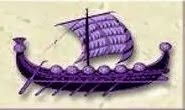 Story Merchant Books
Story Merchant Books King Pirate
King PirateBy Tom SternDigital media products such as Amazon MP3s, Amazon Instant Videos, and Kindle content can only be purchased on Amazon.com.

Average customer review:

(16 customer reviews)A modern-day privateer-a priate of pirates-seeks revenge on the criminal terrorizing the Malacca Strait known as King Pirate
Product DescriptionAfter modern-day pirates murder his best friend, an American ex-Marine captains a fighting ship to wreak revenge.
A sexy, cinematic action-thriller in the tradition of Lee Child and Casino Royale.
Ryan Kelley is a former Marine who’s drifted into knocking around Southeast Asia as a merchant seaman. His best friend is murdered by King Pirate, leader of the biggest criminal organization currently stalking the Malacca Strait.
Kelley swears revenge. He hunts down one of King Pirate’s lieutenants, but swiftly realizes he’ll never get far without help. Kelley goes to Cuchulain, the bizarre leader of the IPC, a law enforcement agency dedicated to fighting piracy. Kelley almost immediately begins an affair with Cuchulain’s lead investigator, the beautiful Russian ex-pat, Anastasia.
But Kelley can’t tolerate working in an office and taking orders. He quits to fight King Pirate alone. Cuchulain makes Kelley an interesting offer: if Kelley agrees to become a modern-day privateer – a pirate of pirates – Cuchulain will fund the expedition. Though he has his suspicions, Kelley agrees.
Kelley buys a ship, attracts a crew of rogues and arms them with black market weapons. He takes King Pirate by surprise, raiding pirate ships on the high seas. The mission is almost too successful; King Pirate’s lieutenants quickly come after Kelley and his men.
Kelley digs into King Pirate’s organization, and realizes that the mysterious criminal’s plans are vastly farther-reaching than just hijacking ships, and his influence in government is far deeper than Kelley imagined. Reaching even into the halls of the IPC… Product DetailsAmazon Sales Rank: #867664 in eBooks Published on: 2014-02-18Released on: 2014-02-18Format: Kindle eBook

Published on June 09, 2014 00:00
Vist Story Merchant Books eStore
 Story Merchant Books
Story Merchant Books King Pirate
King PirateBy Tom SternDigital media products such as Amazon MP3s, Amazon Instant Videos, and Kindle content can only be purchased on Amazon.com.

Average customer review:

(16 customer reviews)A modern-day privateer-a priate of pirates-seeks revenge on the criminal terrorizing the Malacca Strait known as King Pirate
Product DescriptionAfter modern-day pirates murder his best friend, an American ex-Marine captains a fighting ship to wreak revenge.
A sexy, cinematic action-thriller in the tradition of Lee Child and Casino Royale.
Ryan Kelley is a former Marine who’s drifted into knocking around Southeast Asia as a merchant seaman. His best friend is murdered by King Pirate, leader of the biggest criminal organization currently stalking the Malacca Strait.
Kelley swears revenge. He hunts down one of King Pirate’s lieutenants, but swiftly realizes he’ll never get far without help. Kelley goes to Cuchulain, the bizarre leader of the IPC, a law enforcement agency dedicated to fighting piracy. Kelley almost immediately begins an affair with Cuchulain’s lead investigator, the beautiful Russian ex-pat, Anastasia.
But Kelley can’t tolerate working in an office and taking orders. He quits to fight King Pirate alone. Cuchulain makes Kelley an interesting offer: if Kelley agrees to become a modern-day privateer – a pirate of pirates – Cuchulain will fund the expedition. Though he has his suspicions, Kelley agrees.
Kelley buys a ship, attracts a crew of rogues and arms them with black market weapons. He takes King Pirate by surprise, raiding pirate ships on the high seas. The mission is almost too successful; King Pirate’s lieutenants quickly come after Kelley and his men.
Kelley digs into King Pirate’s organization, and realizes that the mysterious criminal’s plans are vastly farther-reaching than just hijacking ships, and his influence in government is far deeper than Kelley imagined. Reaching even into the halls of the IPC… Product DetailsAmazon Sales Rank: #867664 in eBooks Published on: 2014-02-18Released on: 2014-02-18Format: Kindle eBook

Published on June 09, 2014 00:00
June 6, 2014
Girls rule, boys drool.
Women-Centric Films Out-Gross Male-Centric Films on Average: Twist!
By Bruce Handy
 Clockwise from top: Sandra Bullock, Jennifer Lawrence, Melissa McCarthy, Will Smith, Johnny Depp.
Clockwise from top: Sandra Bullock, Jennifer Lawrence, Melissa McCarthy, Will Smith, Johnny Depp.
Hollywood: dumb or venal? I once thought the latter, but now I’m not so sure. The prompt was a study that came out this week claiming that of the 100 highest-grossing movies of 2013, only 15 featured women as their central protagonists.
As mingy as that number might seem, it is actually up from the 11 high-grossing films carried by actresses in 2011—but down, alas, from 16 in 2002. The study was published by the Center for the Study of Women in Television & Film at San Diego State University, which also tabulates the number of women working behind the camera. (Not such a great statistic, either. You can find the center’s studies here.) On the one hand, given the conventional wisdom that says there are no good roles in Hollywood for actresses—especially actresses over the age of 23 or so—maybe those numbers aren’t so shocking, even in a movie year that produced Gravity and Hunger Games: Catching Fire and Frozen. On the other hand, I for one will confess to being un-jaded enough to be surprised and dismayed by the further finding that only 30 percent of all speaking roles in those top 100 movies went to actresses—a number even more disturbing when you calculate that probably half those speaking roles for actresses were strip-club hostesses asking Mark Wahlberg or Vin Diesel if they wanted to buy a bottle of lousy champagne.
Of course, many people took the study as proof that Hollywood is myopic and sexist and dumb. As Martha M. Lauzen, the author of the study and executive director of the center, told The New York Times, “We think of Hollywood as a very progressive place and bastion of liberal thought. But when you look at the numbers and representation of women onscreen, that’s absolutely not the case.” She blames that on a dearth of women in positions of power in the film industry: “If there’s gender inertia behind the scenes, you’ll find gender inertia onscreen.”
I wondered, though. My operating assumption is that Hollywood’s sins can generally be laid at the feet of audiences, that the studio’s biggest character flaw is that they try so gosh-darn hard to please. Put another way, audiences get the films they’re willing to pay for, as the summer movie-going season demonstrates year after year. Was The Lone Ranger a big huge bomb? Well, sure, if you only care about so-called return on investment. Leaving aside that it cost Disney approximately $12 quadrillion to make, The Lone Ranger grossed $89 million domestically; with an average ticket price of $8.38 last summer, that means more than 10 million people went to see it. Which you have to admit is still a lot of bad-movie enablers.
So I figured that if Hollywood sharpies decline to make many movies about women having adventures in space or catching criminals or getting to be the funny ones, it was because, despite a few prominent exceptions, audiences didn’t want to see them, in aggregate. Money talks, walks, eats, breathes, has a private yoga instructor, collects Richard Price, flosses, so I figured there must be method to Hollywood’s ostensible sexism.
To prove my theory, I put on my Nate Silver hat and looked at the top 100 grossing domestic movies of 2013, as tabulated by Box Office Mojo. (By definition, these are films that played in theaters, most with the benefit of serious to reasonable marketing budgets as opposed to VOD-only releases, etc.) The Center for the Study of Women in Television & Film’s doesn’t list which specific films it counts as headed by women, but I did my own tabulation and also came up with these 15 (listed here, followed by its place in the top 100):
The Hunger Games: Catching Fire (1)
Frozen (3)
Gravity (6)
The Heat (15)
Identity Thief (20)
Epic (31)
Mama (47)
Safe Haven (48)
Tyler Perry’s Temptation: Confessions of a Marriage Counselor (68)
The Call (69)
August: Osage County (79)
Philomena (81)
Carrie (83)
Blue Jasmine (86)
The Host (96)
Obviously, some of these calls are subjective. Identity Thief co-starred Melissa McCarthy and Jason Bateman and was more or less told from Bateman’s point of view, but McCarthy’s character dominates the film and, with all due respect to the wonderful Bateman, I’d argue she was the one audiences were coming to see, so I added that film to the women’s column. Similarly, August: Osage County, an ostensible ensemble film where Meryl Streep and Julia Roberts are the draws.
On the other hand, there was Saving Mr. Banks, which is really Emma Thompson’s movie, but Tom Hanks figured so prominently in the advertising and promotion I put it in a neutral category—great parts for all! (or at least equal parts)—along with five other films: American Hustle, We’re the Millers, The Conjuring, Side Effects, and Hansel & Gretel: Witch Hunters, a film the very title of which speaks gender equity.
You might quibble with some of these designations, but I think we can all agree that the bulk of the year’s top 100 movies, from Iron Man 3 to World War Z to The Secret Life of Walter Mitty to Grudge Match were boy movies. Two close calls that I left on the male side of the ledger: Tyler Perry’s A Madea Christmas (my, grandma, what a big Y chromosome you have) and One Direction: This Is Us (starring boys, made for girls).
Also, just to be sure that box office wasn’t skewing the study’s results, that there wasn’t a huge cache of women-centered flops clustered below the top 100, I took a look at the next 50 films on Box Office Mojo’s grosses list; at that point, you’ve pretty much covered all the big studio films and many indies and are drilling down into documentary, foreign film, and re-release territory. Of those 50 films, I tallied 10 headed by actresses—a slightly higher percentage than in the top 100, but not dispositive—and 4 gender neutral. A list of those films is appended below.
O.K., here’s the math part, which is actually pretty simple (otherwise I wouldn’t be doing it):
Total gross of all the top 100 movies in 2013: $10.039 billion.
Total gross of 15 actress-centered movies: $1.908 billion.
Total gross of 79 actor-centered movies: $7.525 billion.
Average gross of actress-centered movie: $127 million.
Average gross of actor-centered movie: $95 million.
So I was wrong! Actress-centered movies out-grossed actor-centered movies by almost exactly one-third! Hollywood is myopic and sexist and dumb! Or else it has a better excuse for not making more movies starring women than I can think of—are Gravity and Catching Fire exceptions to some closely-held, super-secret rule? At any rate, according to math, the studios appear to be leaving money on the table, one sin they’ve rarely if ever been accused of.
To tie a neat little numerical bow around this report, the six gender-neutral films grossed an average of $101 million each, essentially the same as the average gross for all top 100 films films—$100 million. The difference is the change in Brett Ratner’s couch.
I suppose someone might argue that these aren’t fair comparisons. One might whine that the boys’ average is dragged down by a surfeit of tired thrillers, tired action movies, tired comic-book movies, and tired buddy movies. But whose fault is that?
A couple of suggestions:
Whoever it is who has an obsessive need to squander Robert De Niro by putting him in movies like Grudge Match, The Family, and Last Vegas should take a good look in the mirror, and then maybe think about squandering Charlize Theron for a change.
And memo to Sony: next time you make After Earth, cast Willow instead of Jaden.
***
Here’s my list of actress-centered films from the next 50, again followed by rank:
Baggage Claim (106)
The Book Thief (109)
You’re Next (114)
Admission (116)
Enough Said (118)
The Last Exorcism Part II (125)
Spring Breakers (126)
The Bling Ring (146)
Pulling Strings (147)
The Wizard of Oz, 3-D re-release (149)
Chennai Express (150)
Reposted From Vanity Fair
By Bruce Handy
 Clockwise from top: Sandra Bullock, Jennifer Lawrence, Melissa McCarthy, Will Smith, Johnny Depp.
Clockwise from top: Sandra Bullock, Jennifer Lawrence, Melissa McCarthy, Will Smith, Johnny Depp.Hollywood: dumb or venal? I once thought the latter, but now I’m not so sure. The prompt was a study that came out this week claiming that of the 100 highest-grossing movies of 2013, only 15 featured women as their central protagonists.
As mingy as that number might seem, it is actually up from the 11 high-grossing films carried by actresses in 2011—but down, alas, from 16 in 2002. The study was published by the Center for the Study of Women in Television & Film at San Diego State University, which also tabulates the number of women working behind the camera. (Not such a great statistic, either. You can find the center’s studies here.) On the one hand, given the conventional wisdom that says there are no good roles in Hollywood for actresses—especially actresses over the age of 23 or so—maybe those numbers aren’t so shocking, even in a movie year that produced Gravity and Hunger Games: Catching Fire and Frozen. On the other hand, I for one will confess to being un-jaded enough to be surprised and dismayed by the further finding that only 30 percent of all speaking roles in those top 100 movies went to actresses—a number even more disturbing when you calculate that probably half those speaking roles for actresses were strip-club hostesses asking Mark Wahlberg or Vin Diesel if they wanted to buy a bottle of lousy champagne.
Of course, many people took the study as proof that Hollywood is myopic and sexist and dumb. As Martha M. Lauzen, the author of the study and executive director of the center, told The New York Times, “We think of Hollywood as a very progressive place and bastion of liberal thought. But when you look at the numbers and representation of women onscreen, that’s absolutely not the case.” She blames that on a dearth of women in positions of power in the film industry: “If there’s gender inertia behind the scenes, you’ll find gender inertia onscreen.”
I wondered, though. My operating assumption is that Hollywood’s sins can generally be laid at the feet of audiences, that the studio’s biggest character flaw is that they try so gosh-darn hard to please. Put another way, audiences get the films they’re willing to pay for, as the summer movie-going season demonstrates year after year. Was The Lone Ranger a big huge bomb? Well, sure, if you only care about so-called return on investment. Leaving aside that it cost Disney approximately $12 quadrillion to make, The Lone Ranger grossed $89 million domestically; with an average ticket price of $8.38 last summer, that means more than 10 million people went to see it. Which you have to admit is still a lot of bad-movie enablers.
So I figured that if Hollywood sharpies decline to make many movies about women having adventures in space or catching criminals or getting to be the funny ones, it was because, despite a few prominent exceptions, audiences didn’t want to see them, in aggregate. Money talks, walks, eats, breathes, has a private yoga instructor, collects Richard Price, flosses, so I figured there must be method to Hollywood’s ostensible sexism.
To prove my theory, I put on my Nate Silver hat and looked at the top 100 grossing domestic movies of 2013, as tabulated by Box Office Mojo. (By definition, these are films that played in theaters, most with the benefit of serious to reasonable marketing budgets as opposed to VOD-only releases, etc.) The Center for the Study of Women in Television & Film’s doesn’t list which specific films it counts as headed by women, but I did my own tabulation and also came up with these 15 (listed here, followed by its place in the top 100):
The Hunger Games: Catching Fire (1)
Frozen (3)
Gravity (6)
The Heat (15)
Identity Thief (20)
Epic (31)
Mama (47)
Safe Haven (48)
Tyler Perry’s Temptation: Confessions of a Marriage Counselor (68)
The Call (69)
August: Osage County (79)
Philomena (81)
Carrie (83)
Blue Jasmine (86)
The Host (96)
Obviously, some of these calls are subjective. Identity Thief co-starred Melissa McCarthy and Jason Bateman and was more or less told from Bateman’s point of view, but McCarthy’s character dominates the film and, with all due respect to the wonderful Bateman, I’d argue she was the one audiences were coming to see, so I added that film to the women’s column. Similarly, August: Osage County, an ostensible ensemble film where Meryl Streep and Julia Roberts are the draws.
On the other hand, there was Saving Mr. Banks, which is really Emma Thompson’s movie, but Tom Hanks figured so prominently in the advertising and promotion I put it in a neutral category—great parts for all! (or at least equal parts)—along with five other films: American Hustle, We’re the Millers, The Conjuring, Side Effects, and Hansel & Gretel: Witch Hunters, a film the very title of which speaks gender equity.
You might quibble with some of these designations, but I think we can all agree that the bulk of the year’s top 100 movies, from Iron Man 3 to World War Z to The Secret Life of Walter Mitty to Grudge Match were boy movies. Two close calls that I left on the male side of the ledger: Tyler Perry’s A Madea Christmas (my, grandma, what a big Y chromosome you have) and One Direction: This Is Us (starring boys, made for girls).
Also, just to be sure that box office wasn’t skewing the study’s results, that there wasn’t a huge cache of women-centered flops clustered below the top 100, I took a look at the next 50 films on Box Office Mojo’s grosses list; at that point, you’ve pretty much covered all the big studio films and many indies and are drilling down into documentary, foreign film, and re-release territory. Of those 50 films, I tallied 10 headed by actresses—a slightly higher percentage than in the top 100, but not dispositive—and 4 gender neutral. A list of those films is appended below.
O.K., here’s the math part, which is actually pretty simple (otherwise I wouldn’t be doing it):
Total gross of all the top 100 movies in 2013: $10.039 billion.
Total gross of 15 actress-centered movies: $1.908 billion.
Total gross of 79 actor-centered movies: $7.525 billion.
Average gross of actress-centered movie: $127 million.
Average gross of actor-centered movie: $95 million.
So I was wrong! Actress-centered movies out-grossed actor-centered movies by almost exactly one-third! Hollywood is myopic and sexist and dumb! Or else it has a better excuse for not making more movies starring women than I can think of—are Gravity and Catching Fire exceptions to some closely-held, super-secret rule? At any rate, according to math, the studios appear to be leaving money on the table, one sin they’ve rarely if ever been accused of.
To tie a neat little numerical bow around this report, the six gender-neutral films grossed an average of $101 million each, essentially the same as the average gross for all top 100 films films—$100 million. The difference is the change in Brett Ratner’s couch.
I suppose someone might argue that these aren’t fair comparisons. One might whine that the boys’ average is dragged down by a surfeit of tired thrillers, tired action movies, tired comic-book movies, and tired buddy movies. But whose fault is that?
A couple of suggestions:
Whoever it is who has an obsessive need to squander Robert De Niro by putting him in movies like Grudge Match, The Family, and Last Vegas should take a good look in the mirror, and then maybe think about squandering Charlize Theron for a change.
And memo to Sony: next time you make After Earth, cast Willow instead of Jaden.
***
Here’s my list of actress-centered films from the next 50, again followed by rank:
Baggage Claim (106)
The Book Thief (109)
You’re Next (114)
Admission (116)
Enough Said (118)
The Last Exorcism Part II (125)
Spring Breakers (126)
The Bling Ring (146)
Pulling Strings (147)
The Wizard of Oz, 3-D re-release (149)
Chennai Express (150)
Reposted From Vanity Fair

Published on June 06, 2014 00:00



